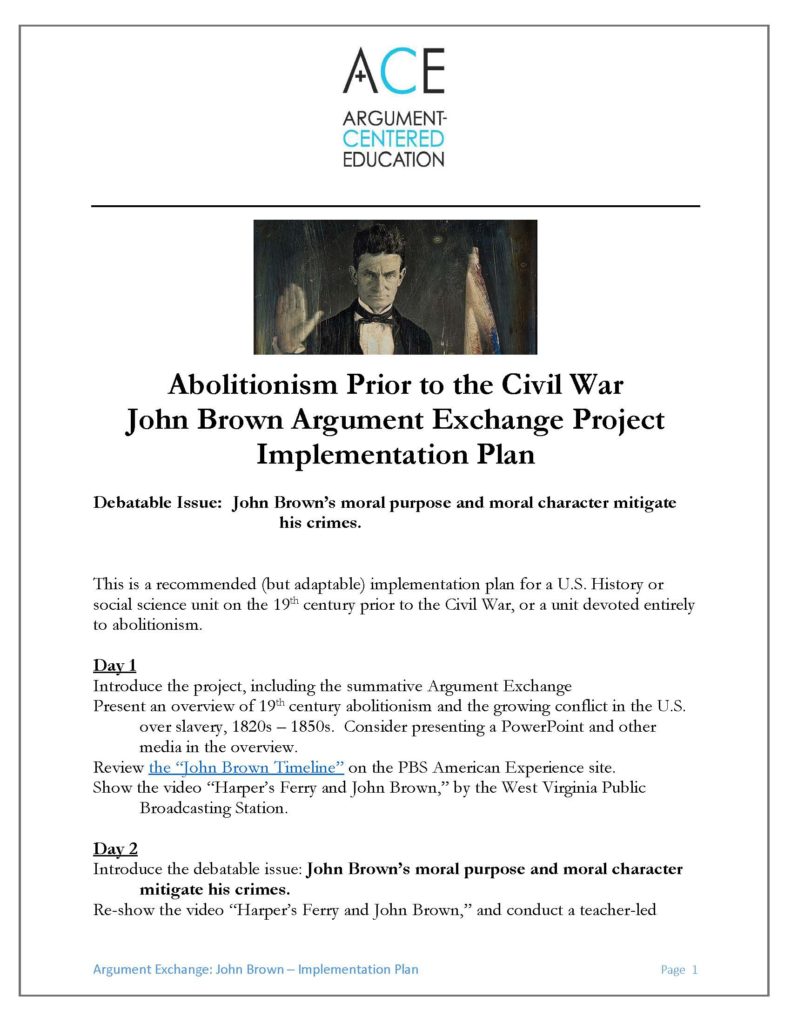A SEPUP Natural Selection Activity Converted into Argument
Overview
This assessment corresponds with SEPUP Adventures in Life Science, 2nd Edition (U. of California Berkeley Press, 2012), Activity 94, “A Meeting of the Minds.” The SEPUP activity revolves around a fictional dialogue in the textbook that has Charles Darwin and Jean-Baptiste Lamarck discussing their respective theories of evolution, using the example of the way that giraffes evolved to acquire extremely long necks. The activity concludes by asking students a series of analytical questions on the dialogue that tests students’ understanding of evolution, natural selection, variation, and adaptation. This assessment has students apply this understanding to other instances of evolution, requiring students to demonstrate their knowledge of these terms, and to express their understanding critically and in the form of academic argumentation.
News, Knowledge, and Literacy
I was recently in a 10th grade U.S. History class and the students were working on and then reviewing a set of questions on the U.S. Constitution. One question asked whether it is possible for a Senator to be expelled from the Senate and, if it is, what is the procedure for expulsion. Article I, section 5 of the U.S. Constitution says that
Each House [of Congress] may determine the Rules of its proceedings, punish its members for disorderly behavior, and, with the concurrence of two-thirds, expel a member.
I saw an opportunity to remind students that, while the Constitution is a 230 year old document, it is also very current and relevant to issues and questions that are important today. So I chimed in to ask the class of 20 or so students who could summarize the current political case in which expulsion from the Senate — or, more accurately, the possibility of future expulsion — is being discussed. Not a single student could answer. No one had any idea what is going on with Judge Roy Moore, the Alabama Republican running for U.S. Senate who is being accused by a half-dozen women or more of either pursuing a romantic relationship with them, or touching them, when they were minors. No one had ever heard of Roy Moore, they said. This is despite the fact that for a week — and especially for the past several days — Moore has been the dominant story in the mainstream news media. The only conclusion to be drawn is that a very low percentage of these students follow the news in even a very cursory way. Based on years now of discussions with secondary social science and English teachers, this story is far more typical than it is unusual.
Concentrating and Practicalizing SAT Skills Insight
The SAT suite of assessments have emerged as probably the leading tool for measurement of secondary school learning and student achievement. The SAT, of course, is one of the two national college admissions exams, which makes it an inherently important test for high schools committed to preparing all of their students for college. The PSAT 9th and 10th grade assessments help keep students on track for the continued development of the skills that the exam, and its College Board designers, believe are essential to be college-ready. And for a growing number of states – twelve right now, including Illinois – the SAT suite is used for required assessment of all public high school students, in many instances as a replacement for the Common Core assessments PARCC or SmarterBalanced, with the reasoning that the SAT is CCS-aligned and thus administering it covers both college-entrance and CCS assessment in one test.







